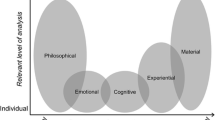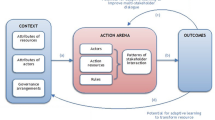Abstract
In areas of land conflict, fear and the threat of violence work to reproduce imaginaries of land as a resource that powerful people can grab. An urgent question for agrarian scholars and activists is how people can overcome fear so that alternative imaginaries might flourish. In this article, we argue for attention to the affective dimension of imaginaries; ideas of what land is and should be are co-constituted through the material and social, imbued with powerful emotions that enable imaginaries to be reproduced, to be challenged, and even to be transformed. We draw from long-term research projects in Cambodia—a country known for plantation-fuelled dispossession—where the Prime Minister’s surprise announcement of a land titling campaign in 2012 ruptured the wave of land grabbing, creating openings to imagine different outcomes that are rooted in the potential for legal recognition of smallholder claims. Although the campaign was an uncertain rupture in land imaginaries, these moments matter. Land claimants sought to create affective ties with volunteer land surveyors that embedded hopeful land imaginaries in rural areas and into the national cadastral system. The land title in this context is the material bearer of a land imaginary that centres on rural people’s connection to the land, and also reinforces rural people’s connection to the Cambodian state and the potential to gain the state’s protection. We contribute to an emerging literature that locates the formative effects of hope as an orientation and as a method by exploring the possibilities inherent in rupture.
Similar content being viewed by others
Notes
Examples of the karaoke videos can be found on YouTube at https://youtu.be/zdrwplDEbAw and https://youtu.be/4SbDA7h0L-M.
References
ADHOC. 2014. Report: Land Situation in Cambodia in 2013. ADHOC: Phnom Penh.
Akram-Lodhi, A.H., S.M. Borras, and C. Kay. 2007. Land, Poverty and Livelihoods in an Era of Globalization. London: Routledge.
Anderson, B. 2017. Hope and Micropolitics. Environment and Planning D: Society and Space 35 (4): 593–595.
Back, L. 2017. Blind Pessimism and the Sociology of Hope. Discover Society 27(December). https://discoversociety.org/2015/12/01/blind-pessimism-and-the-sociology-of-hope/. Accessed 13 Jan 2019.
Beban, A., and L. Schoenberger. 2019. Fieldwork Undone: Knowing Cambodia’s Land Grab through Affective Encounters. Acme 18 (1): 77–103.
Bloch, E. 1998. Can Hope Be Disappointed? In Literary Essays, 339–45. Trans. A. Joron.Stanford, CA: Stanford University Press.
Bouchard, G. 2017. Social Myths and Collective Imaginaries. Toronto: University of Toronto Press.
Bryant, R. 2014. History’s Reminders: On Time and Objects After Conflict in Cyprus. American Ethnologist 41 (4): 681–697.
Daniels, S. 2011. Geographical Imagination. Transactions of the Institute of British Geographers 36 (2): 182–187.
Dawney, L. 2011. Social Imaginaries and Therapeutic Self-Work: The Ethics of the Embodied Imagination. The Sociological Review 59 (3): 535–552.
De Soto, H. 2000. The Mystery of Capital: Why Capitalism Triumphs in the West and Fails Everywhere Else. New York: Basic Books.
Dwyer, M.B. 2015. The Formalization Fix? Land Titling, Land Concessions and the Politics of Spatial Transparency in Cambodia. The Journal of Peasant Studies 42 (5): 903–928.
Gatens, M., and G. Lloyd. 1999. Collective Imaginings: Spinoza, Past and PRESENT. London: Routledge.
Gibson-Graham, J.K. 2006. A Postcapitalist Politics. Minneapolis: University of Minnesota Press.
Gottesman, E. 2003. Cambodia after the Khmer Rouge: Inside the Politics of Nation Building. New Haven: Yale University Press.
Grimsditch, M., and L. Schoenberger. 2015. New Actions and Existing Policies: The Implementation and Impacts of Order 01. Phnom Penh: NGO Forum.
Guillou, A.Y. 2006. The Question of Land in Cambodia: Perceptions, Access, and Use since De-collectivization. Moussons: Recherche en sciences humaines sur lʼAsie du Sud-Est [Social science research on Southeast Asia] 9–10: 299–324.
Hauer, J., J. Østergaard Nielsen, and J. Niewöhner. 2018. Landscapes of Hoping—Urban Expansion and Emerging Futures in Ouagadougou, Burkina Faso. Anthropological Theory 18 (1): 59–80.
Hun Sen. 2012. Hun Sen Speech to Volunteers at Koh Pich, 19 May. YouTube.https://www.youtube.com/watch?v=6SQ_wSljrrs.
Jansen, S. 2014. Hope For/Against the State: Gridding in a Besieged Sarajevo Suburb. Ethnos 79 (2): 238–260.
Jasanoff, S. 2015a. Future Imperfect: Science, Technology and the Imaginations of Modernity. In Dreamscapes of Modernity: Sociotechnical Imaginaries and the Fabrication of Power, ed. S. Jasanoff and S. Kim. Chicago: Chicago University Press.
Jasanoff, S. 2015b. Imagined and Invented Worlds. In Dreamscapes of Modernity: Sociotechnical Imaginaries and the Fabrication of Power, ed. S. Jasanoff and S. Kim. Chicago: Chicago University Press.
Jasanoff, S., and S. Kim. 2015. Dreamscapes of Modernity: Sociotechnical Imaginaries and the Fabrication of Power. Chicago: Chicago University Press.
Kleist, N., and S. Jansen. 2016. Introduction: Hope over Time—Crisis, Immobility and Future-Making. History and Anthropology 27 (4): 373–392.
Laclau, E. 1990. New Reflections on the Revolution of Our Time. London: Verso.
Laclau, E. 2005. On Populist Reason. London: Verso.
Le Billon, P. 2002. Logging in Muddy Waters: The Politics of Forest Exploitation in Cambodia. Critical Asian Studies 34 (4): 563–586.
Li, T.M. 2014. What is Land? Assembling a Resource for Global Investment. Transactions of the Institute of British Geographers 39 (4): 589–602.
Lund, C. 2016. Rule and Rupture: State Formation Through the Production of Property and Citizenship. Development and Change 47 (6): 1199–1228.
Milne, S. 2014. Under the Leopard’s Skin: Land Commodification and the Dilemmas of Indigenous Control in Upland Cambodia. Asia Pacific Viewpoint 54 (3): 323–339.
MLMUPC. 2014. Notification, 17 December. Phnom Penh: Ministry of Land Management, Urban Planning and Construction.
Mouffe, C. 2005. The ‘End of Politics’ and the Challenge of Right Wing Populism. In Populism and the Mirror of Democracy, ed. F. Panizza. London: Verso.
Neef, A., S. Touch, and J. Chiengthong. 2013. The Politics and Ethics of Land Concessions in Rural Cambodia. Journal of Agricultural and Environmental Ethics 26 (6): 1085–1103.
Öjendal, J. 2013. In Search of a Civil Society: Re-negotiating State-Society Relations in Cambodia. In Southeast Asia and the Civil Society Gaze: Scoping a Contested Concept in Cambodia and Vietnam, ed. G. Waibel, J. Ehlert, and H. Feuer. London: Routledge.
Popke, J. 2009. Geography and Ethics: Non-Representational Encounters, Collective Responsibility and Economic Difference. Progress in Human Geography 33 (1): 81–90.
Puig de la Bellacasa, M. 2015. Making Time for Soil: Technoscientific Futurity and the Pace of Care. Social Studies of Science 45 (5): 691–716.
RGC (Royal Government of Cambodia). 2010. National Strategic Development Plan Update, 2009–2013. Phnom Penh: RGC.
RGC (Royal Government of Cambodia). 2012. Manual on Implementation of Order 01 dated 07 May, 2012 on Measures Strengthening and Increasing Effectiveness of ELC Management. Phnom Penh: RGC.
Robinson, A., and S. Tormey. 2008. Is Another World Possible? Laclau, Mouffe and Social Movements. In The Politics of Radical Democracy, ed. A. Little and M. Lloyd. Edinburgh: Edinburgh University Press.
Said, E. 1978. Orientalism. New York: Pantheon.
Salazar, N., and N. Graburn. 2016. Tourism Imaginaries: Anthropological Approaches. New York: Berghahn.
Schoenberger, L. 2017. Struggling Against Excuses: Winning Back Land in Cambodia. The Journal of Peasant Studies 44 (4): 870–890.
Schoenberger, L., and A. Beban. 2018. ‘They Turn Us into Criminals’: Embodiments of Fear in Cambodian Land Grabbing. Annals of the American Association of Geographers 108 (5): 1338–1353.
Scott, J. 1998. Seeing like a state. New Haven: Yale University Press.
Springer, S. 2013. Illegal Evictions? Overwriting Possession and Orality with Law’s Violence in Cambodia. Journal of Agrarian Change 13 (4): 520–546.
Taylor, C. 2002. Modern Social Imaginaries. Public Culture 14 (1): 91–124.
Thion, S. 1993. Watching Cambodia: Ten Paths to Enter the Cambodian Tangle. Bangkok: White Lotus.
Tsing, A. 2005. Friction. Princeton: Princeton University Press.
Work, C., and A. Beban. 2016. Mapping the Srok: The Mimeses of Land Titling in Cambodia. Sojourn: Journal of Social Issues in Southeast Asia 31 (1): 37–81.
Zembylas, M. 2014. Affective, Political and Ethical Sensibilities in Pedagogies of Critical Hope: Exploring the Notion of ‘Critical Emotional Praxis’. In Discerning Critical Hope in Educational Practices, ed. V. Bozalek, B. Leibowitz, R. Carolissen, and M. Boler, 11–25. New York: Routledge.
Acknowledgements
The authors would like to thank the three guest editors, Sarah Ruth Sippel, Daniel Münster and Oane Visser for comments on earlier versions of this paper, as well as all participants at the Workshop ‘Constructions, Representations, Productions: Exploring Historical and Contemporary. Institutions of Land’ for their insights. We would also like to thank the three anonymous reviewers for their useful feedback. We extend deep gratitude to all participants who took part in the research, the communities we work with in Cambodia, and the networks of committed individuals who support their efforts, for sharing their experiences with us. Laura Schoenberger received financial support for this research from the Social Sciences and Humanities Research Council of Canada (Joseph Armand Bombardier Doctoral Fellowship, Award Number: 767-2011-0280), the International Development Research Centre (Doctoral Research Award, Award Number: 107473-99906075-037) and York University. Alice Beban received financial support from US Department of Education (Fulbright-Hays Doctoral Dissertation Research Abroad, CFDA Number: 84.022).
Author information
Authors and Affiliations
Corresponding author
Additional information
Publisher's Note
Springer Nature remains neutral with regard to jurisdictional claims in published maps and institutional affiliations.
Rights and permissions
About this article
Cite this article
Schoenberger, L., Beban, A. Rupturing violent land imaginaries: finding hope through a land titling campaign in Cambodia. Agric Hum Values 38, 301–312 (2021). https://doi.org/10.1007/s10460-020-10156-z
Accepted:
Published:
Issue Date:
DOI: https://doi.org/10.1007/s10460-020-10156-z




